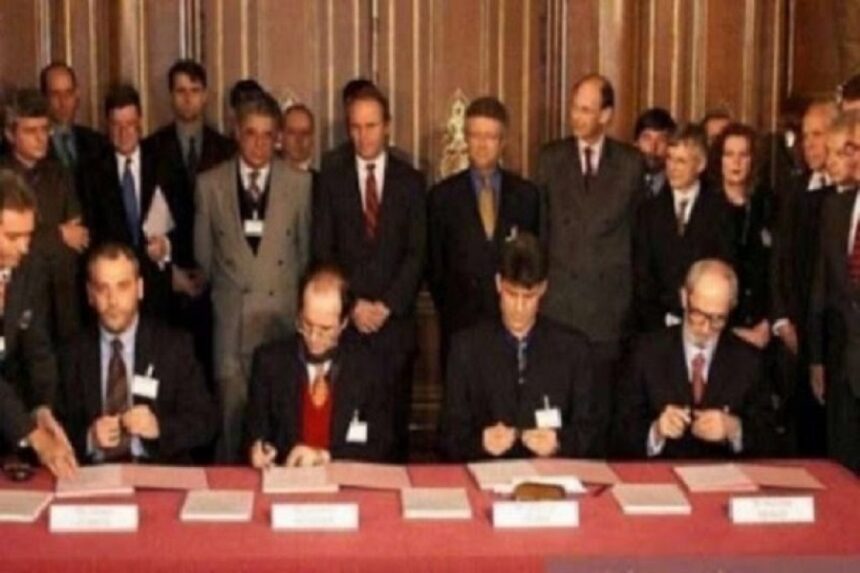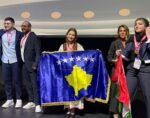Today marks 26 years since the failed attempt to reach an agreement between Kosovo and Serbia in Paris. On March 18, 1999, the Kosovar and Serbian delegations signed different documents. The Kosovo delegation accepted the agreement proposed by international mediators, while the Serbian delegation signed a political draft agreement—one that only granted Kosovo self-governance, reports KosovaPress.
The Rambouillet Conference aimed to establish a framework for ending violence in Kosovo under OSCE supervision. The proposed deal sought a peaceful resolution through dialogue, recognition of Kosovo’s sovereignty and territorial integrity, substantial self-governance, and protection of all national communities. A three-year period was suggested for determining Kosovo’s final status.
The implementation of the agreement was expected to involve the United Nations, yet Kosovo’s political status was ultimately resolved eight and a half years later, again with international involvement. The Serbian side firmly rejected the proposed compromises, despite warnings from U.S. envoy Richard Holbrooke about potential consequences. Serbian leaders refused to sign the final agreement and declined to accept NATO peacekeeping forces.
The Course of the Negotiations
The Rambouillet Conference, which began on February 6, 1999, near Paris, was initiated by the Contact Group and mediated by Christopher Hill (U.S.), Boris Mayorsky (Russia), and Wolfgang Petritsch (EU). While the Kosovo delegation conditionally accepted the proposed agreement, Serbia opposed NATO’s involvement and insisted on an international force under the UN’s command.
The second round of negotiations, which started on March 15 in Paris, also ended in failure. The Kosovo delegation, led by Hashim Thaçi (UÇK), Ibrahim Rugova (LDK), and Rexhep Qosja (LBD), signed the offered agreement on March 18, while Serbia insisted on its version of a self-governance framework for Kosovo. Other key participants included publicists Veton Surroi and Blerim Shala. UÇK’s political representative, Adem Demaçi, boycotted the conference.
The final attempt to persuade Serbia failed on March 22, when Holbrooke unsuccessfully tried to convince then-president Slobodan Milošević to accept the agreement. Consequently, on March 24, 1999, NATO launched airstrikes against Serbian military and paramilitary forces, which lasted until June 10, 1999, when the Kumanovo Agreement was signed. This agreement led to the withdrawal of Yugoslav forces and the deployment of international peacekeepers in Kosovo.
Following NATO intervention, the UN Security Council adopted Resolution 1244, establishing a UN protectorate in Kosovo through UNMIK (civil administration) and KFOR (military presence). Kosovo declared independence on February 17, 2008.







